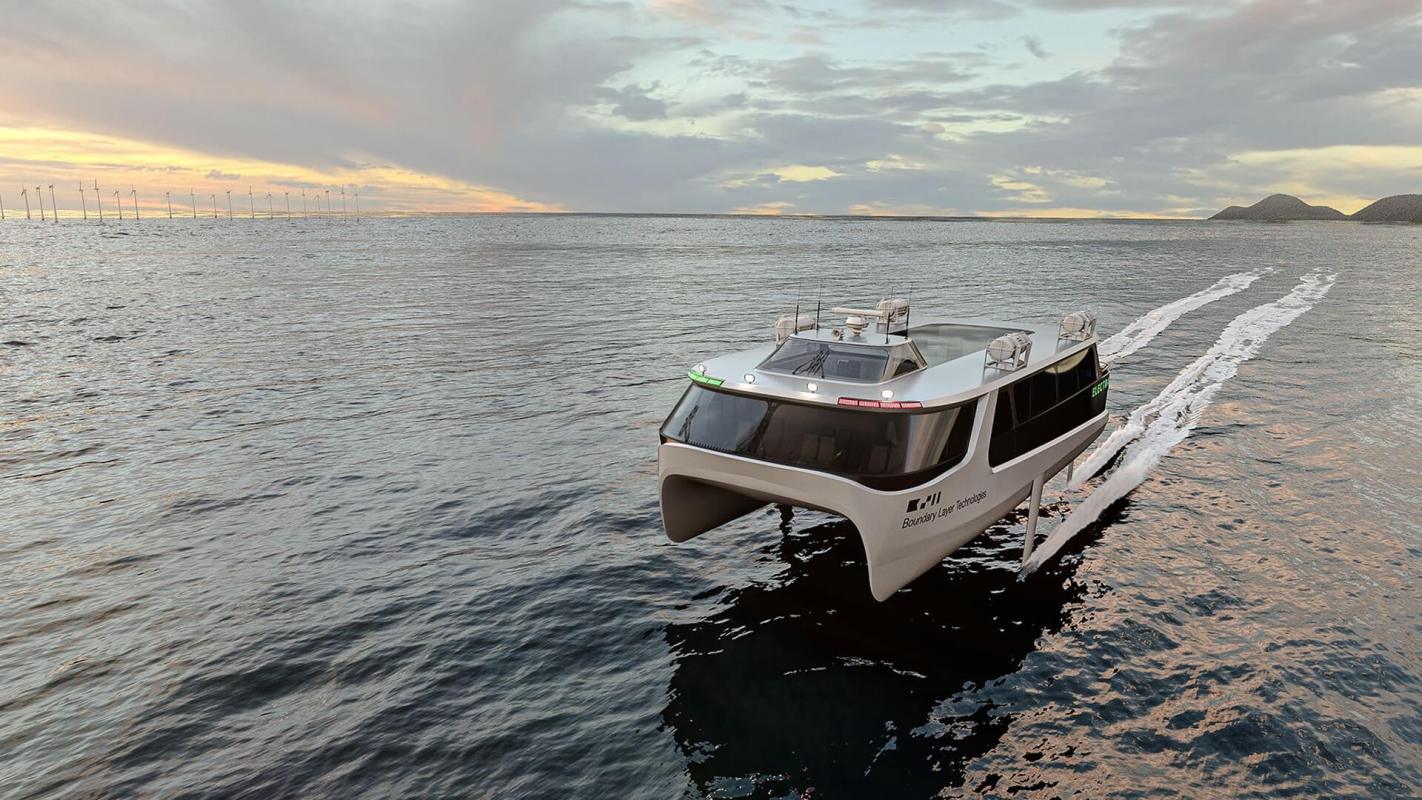We could be on the brink of a major change in shipping. Low- to no-emission cargo ships are poised to take to the seas, reducing carbon pollution and providing alternatives to expensive and polluting air freight.
Startups like Boundary Layer, whose ships utilize hydrogen power and hydrofoil technology, and B9 Shipping, which is pioneering biogas- and wind-powered vessels, are seeking to reduce the negative impact of international shipping operations on the climate.
In 2021, the international shipping industry accounted for 735 tons of carbon pollution, roughly 2% of the global total. The International Energy Agency classifies the shipping industry as "Not on track" to meet its "Net Zero by 2050 Scenario." To get on track, the sector would have to maintain its current pollution levels until 2025 (despite expectations that it will exceed them), then reduce them by 15% from 2025 to 2030.
This may sound like a daunting task, but that's where companies like Boundary Layer and B9 come in.
American technology company Boundary Layer says its hydrogen-powered hydrofoil ships like the ARGO can be as fast as air freight door-to-door at 50% of the cost, all while producing zero carbon pollution.
Boundary Layer has already enlisted several companies as launch partners for the ARGO, including Fortune 500 company Schneider Electric, who Boundary Layer says has "signed letters of intent for freight and will receive first rights to block space when it becomes available."
Energy company B9 calls its shipping technology "a realistic solution to a suite of complex challenges faced by the shipping sector" and says its ships "offer the significant advantage of predictably reduced fuel costs and have the potential to cut the global emissions by nearly 1% without any compromise in performance against oil-powered ships."
Though many of the most promising low- to no-emissions ships are still in the conceptualization phase, some have already been deployed.
In 2022, Norwegian chemical company Yara International unveiled what it called "the world's first zero-emission, autonomous cargo ship," known as the Yara Birkeland. The company held a christening ceremony in April that included a speech by Norway's crown prince. The ship's initial duties include transporting fertilizer across a Norwegian fjord. Shipping news site Ship Technology reports that it will help reduce carbon pollution by 40,000 diesel truckloads per year.
Mission Innovation, a global clean energy initiative of 22 countries and the European Commission, released its Industry Roadmap for Zero-Emission Shipping in April 2022.
TCD Picks » Upway Spotlight

"To set international shipping on an ambitious zero-emission trajectory," the document reads, "we need commercially viable, zero-emission ocean-going vessels in the global fleet by 2030."
The roadmap says it will rely on "broad coalitions and the efforts of public-private collaboration" to achieve its goals, which include ensuring that "at least 200 deep-sea vessels will primarily use zero-emission fuels across the main deep sea shipping routes by 2030."
Join our free newsletter for weekly updates on the coolest innovations improving our lives and saving our planet.














